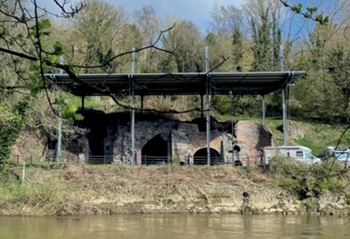Simplified planning zones SPZ
Simplified Planning Zones (SPZ's) were areas in which local planning authorities encouraged development by granting certain specified planning permissions without the need for planning permission or the payment of planning fees.
The policy relating to Simplified Planning Zones was detailed in Planning Policy Guidance 5: Simplified Planning Zones (PPG5). However this was replaced by Planning Policy Statement 4: Planning for Sustainable Economic Growth (PPS4) in 2009, and this in turn was replaced by the National Planning Policy Framework (NPPF - See Annex 3 of the NPPF for a schedule of planning policy guidance and planning policy statements that is replaced by the framework).
The National Planning Policy Framework does not mention Simplified Planning Zones specifically, however it does suggest that planning can be simplified in particular areas:
- Local planning authorities should work together with Local Enterprise Partnerships (LEP's) improving the conditions for economic growth in an area (LEP's are business-led partnerships created to drive sustainable economic growth across local economic areas).
- Local planning authorities can use Local Development Orders to relax planning requirements in particular areas or for particular categories of development to promote economic, social or environmental gains (such as boosting enterprise).
- Neighbourhood Development Orders can be used to grant planning permission for a specific development proposal or classes of development.
- Community Right to Build Orders can be used to allow parish councils and neighbourhood forums to grant planning permission for a specific development proposal or classes of development.
In addition, the government is establishing ‘enterprise zones’ in Local Enterprise Partnerships areas. LEP's are able to bid for enterprise zones. Amongst other things, enterprise zones include simplified planning procedures. This is generally done through the use of Local Development Orders, to allow certain developments without the need for planning permission.
In August 2024 Slough Borough Council launched a consultation for a New Simplified Planning Zone (SPZ) for Slough Trading Estate, which originally had an SPZ applied in 1995, which has been renewed every ten years, in 2004, 2014 and again in 2024. In November the Borough Council voted to adopt the new ten-year Simplified Planning Zone, covering a 168-hectare site. The zone lasts for 10 years and automatically grants full planning permission for specified types of construction of industrial buildings provided a range of conditions are met. Saving applicants from having to apply for planning permission and providing certainty as to the future direction of the Trading Estate.
The council hopes to increase the number of data centres, warehouses and research and development centres in the area through the SPZ, matching the governments intentions to boost data centres throughout the country. The SPZ is supplemented by design codes and funding through a section 106 agreement. The £20 million reserved by the S106 will focus on improving the local area, access and biodiversity.
[edit] Related articles on Designing Buildings
- Community Right to Build Orders.
- Consultation on proposed reforms to NPPF and other changes to the planning system.
- Development corporation.
- Enterprise zones.
- Local Enterprise Partnership.
- National Planning Policy Framework.
- Neighbourhood planning.
- NPPF consultation briefing notes on terms.
- Permitted development.
- Pink zones.
- The grey, the brown and the golden rules of housing.
[edit] External references
Featured articles and news
The act of preservation may sometimes be futile.
Twas the site before Christmas...
A rhyme for the industry and a thankyou to our supporters.
Plumbing and heating systems in schools
New apprentice pay rates coming into effect in the new year
Addressing the impact of recent national minimum wage changes.
EBSSA support for the new industry competence structure
The Engineering and Building Services Skills Authority, in working group 2.
Notes from BSRIA Sustainable Futures briefing
From carbon down to the all important customer: Redefining Retrofit for Net Zero Living.
Principal Designer: A New Opportunity for Architects
ACA launches a Principal Designer Register for architects.
A new government plan for housing and nature recovery
Exploring a new housing and infrastructure nature recovery framework.
Leveraging technology to enhance prospects for students
A case study on the significance of the Autodesk Revit certification.
Fundamental Review of Building Regulations Guidance
Announced during commons debate on the Grenfell Inquiry Phase 2 report.
CIAT responds to the updated National Planning Policy Framework
With key changes in the revised NPPF outlined.
Councils and communities highlighted for delivery of common-sense housing in planning overhaul
As government follows up with mandatory housing targets.


















